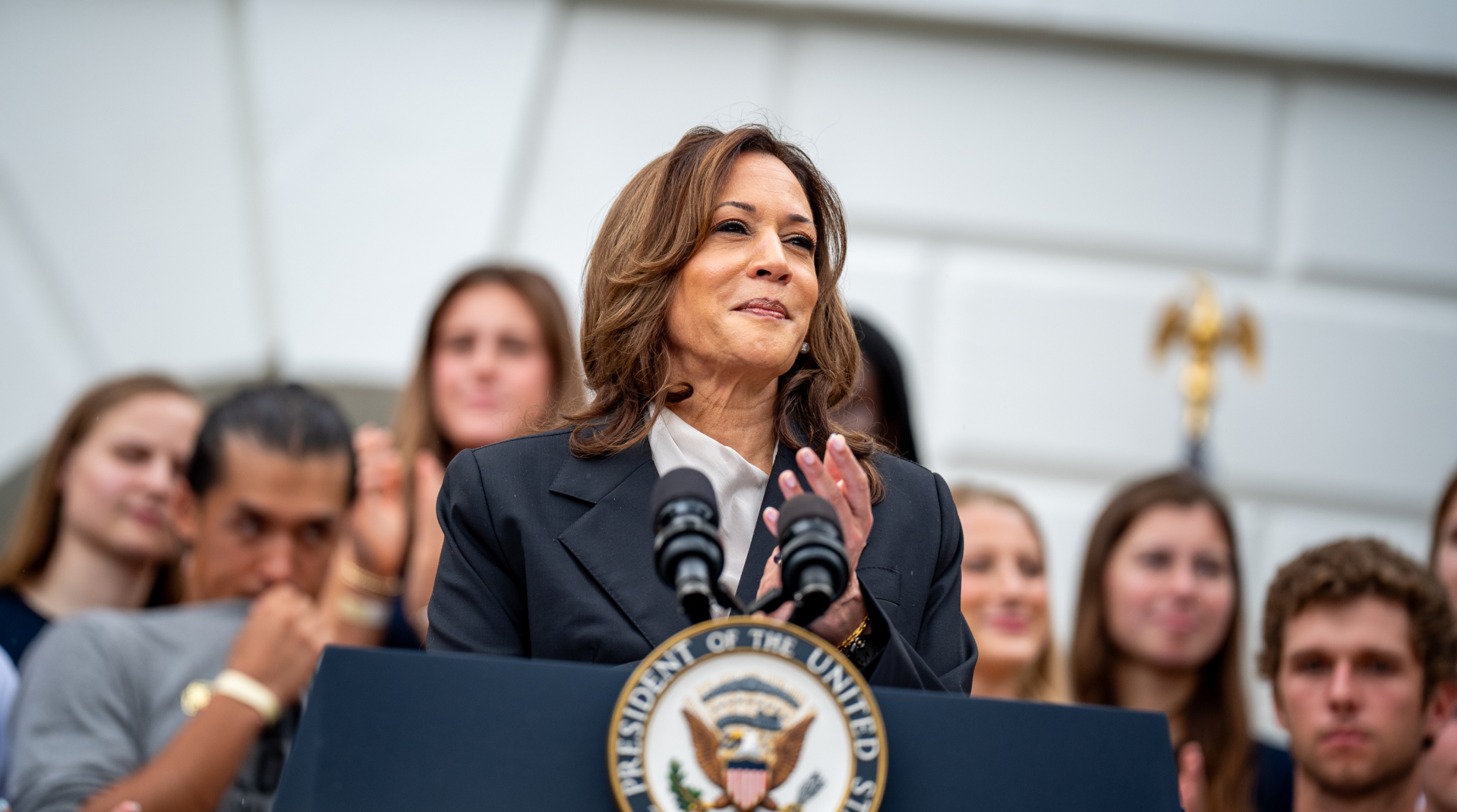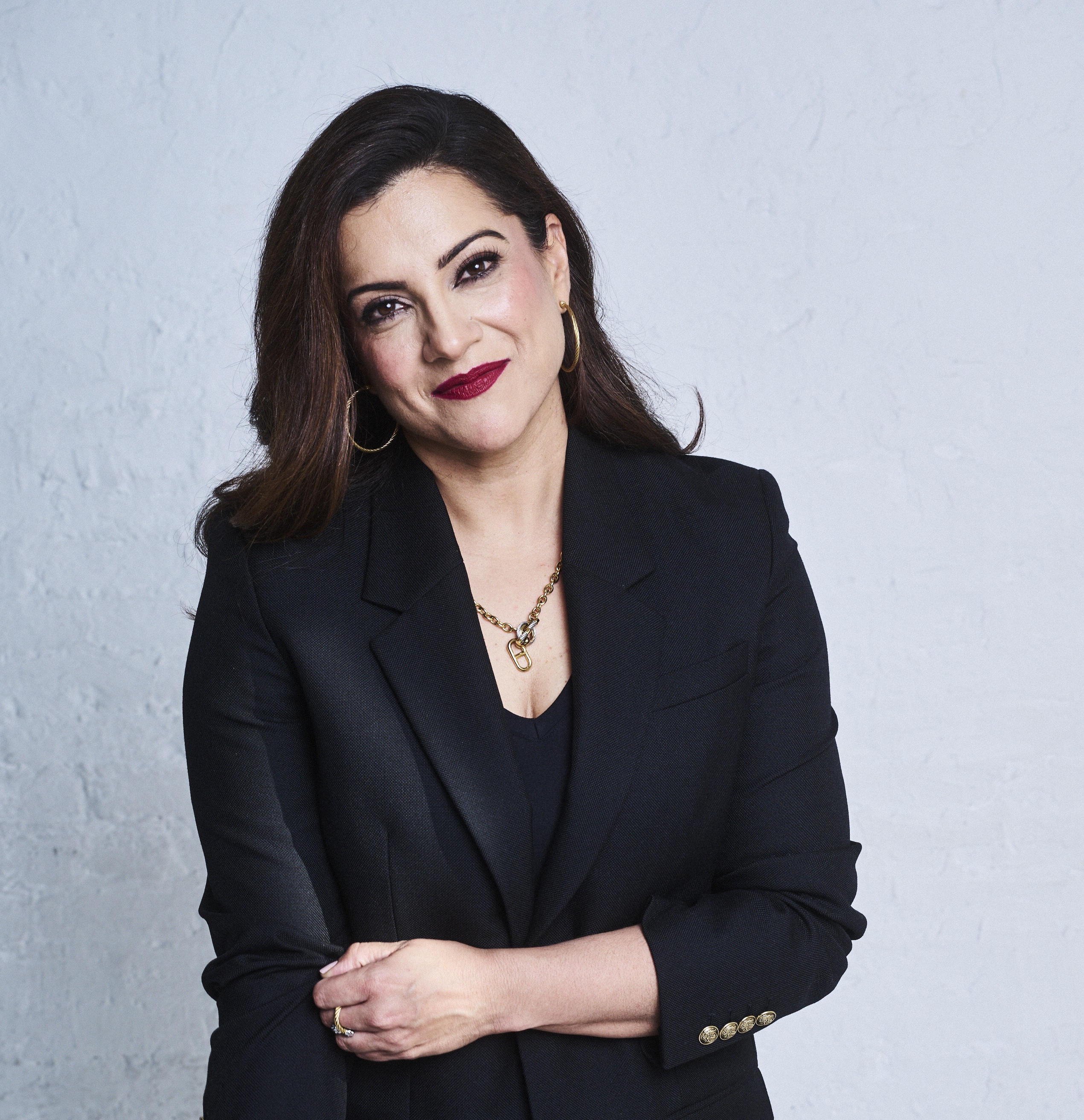Most Republicans Aren't Talking About Gender and Race. Here's Why Kamala Harris Should
The GOP knows that if this becomes a campaign about identity, they’re going to lose.


The GOP has a message for their rank and file: Don’t talk about Kamala Harris’s gender or race.
And I have a message for Kamala Harris: Don’t fall for it.
After the far-right started up their chorus of sexist and racist attacks on Harris—calling her, among other insults, a “DEI vice president”—party leaders rushed to shut it down. At a closed-door meeting with lawmakers this week, Speaker of the House Mike Johnson warned his membership to steer clear of comments about the vice president’s identity.
That’s because the GOP knows that, if this becomes a campaign about identity, they’re going to lose.
Like it or not, they’ve made this race a referendum on female power. Not only have Republicans gleefully stripped away women’s reproductive freedoms, but they’ve made toxic masculinity a centerpiece of their political strategy. (Just think about Hulk Hogan ripping off his shirt at the Republican National Convention.) Now they’re desperate to avoid talking about the policy issues, the women’s issues, that Harris is strongest on—with the biggest potential to galvanize Democratic voters.
And that’s why Kamala Harris absolutely should be talking about her gender and her race—loudly and proudly.
If you look back at Harris’s long, impressive career, women’s issues have always been at the center.
Women voters know what’s really at stake here. The Dobbs decision left young people with fewer reproductive freedoms than their mothers and grandmothers had at their age. It set off a ripple effect, too, putting access to birth control and IVF in danger. And it emboldened the far-right to reach for even more ambitious goals, like outlawing no-fault divorce—which could prevent women from fleeing domestic violence.
Get exclusive access to fashion and beauty trends, hot-off-the-press celebrity news, and more.
That’s not to mention how hard life already is for women and moms in America: the only industrialized nation without paid leave, where child care costs more than housing in every state. It wasn’t that long ago that women were struggling to re-enter the workforce after the pandemic. Now they’re struggling to make ends meet for their families, with inflation hitting parents especially hard.
Yet these very real issues are often cast as second-tier, relegated to the end of the to-do list behind jobs and health care and public safety. (Though you may notice that these “women’s issues” are, in fact, about jobs and health care and public safety.) Women are tired of seeing them brushed to the side.

Harris kicks off her presidential campaign in Milwaukee, Wisconsin, on Tuesday.
And that’s why we’re seeing such a surge of excitement for the Harris campaign—44,000 people joined a Win With Black Women organizing call for her this past weekend and raised $1 million in three hours. In Harris, they see someone who is not qualified for our nation’s highest office in spite of her identity, but because of her identity.
If you look back at Harris’s long, impressive career, women’s issues have always been at the center. In high school, when Harris learned her best friend was being sexually abused by her stepfather, the Harris family took her in—an experience that later inspired her to become a prosecutor. As a senator, she fearlessly took on Brett Kavanaugh —questioning him about the allegations of sexual assault and his stance on abortion. During her 2020 campaign for president, she proposed one of the strongest paid family leave policies of all the candidates in the primary.
And as Vice President, she has been one of the most important advocates for reducing Black maternal mortality in our nation’s history. She has been an ardent champion of abortion rights and outspoken about the need to cap child care costs for American families.
Women candidates have been taught, explicitly and implicitly, that leaning into their identity can be a liability.
For Harris, fighting for women’s rights has been her greatest strength—and positioned her to lead the country today. She should run on those women’s issues now, putting her identity as a Black, South Asian woman front and center in her campaign.
I understand why that could feel like a risky move. Women candidates have been taught, explicitly and implicitly, that leaning into their identity can be a liability.
But the alternative is risky, too—because playing it safe could mean losing this election. Donald Trump’s Vice Presidential pick is just another proof point that the next four years will be hellish for women. JD Vance has intimated support for a nationwide abortion ban, and said that the Democrats—citing Harris specifically—are “miserable” and “childless cat ladies.” With the two of them in power, you can all but guarantee that women’s rights—along with LGBTQ rights, the safety of Black Americans, and more—will be in danger.
Yes, we need to be sounding the alarm on abortion, IVF, and child care. But we need to do something bigger than that, too: challenge the entrenched systems of male power at the heart of Donald Trump’s campaign.
It’s a tall order—but Harris can lead us there. This week, we saw just a taste of what it looks like for women to step into their own power. Now let’s fully unleash it.
Reshma Saujani is a leading activist, the host of the podcast "My So Called Midlife," the founder of Girls Who Code, and the founder and CEO of Moms First (formerly Marshall Plan for Moms). She has spent more than a decade building movements to fight for women and girls’ economic empowerment, working to close the gender gap in the tech sector, and most recently fighting for the structural changes moms need and deserve, including affordable child care, paid leave, and equal pay. She is a New York Times bestselling author of several books including PAY UP: The Future of Women and Work (And Why It’s Different Than You Think), Brave, Not Perfect, and the Girls Who Code book series. As a leading voice on women’s empowerment, her 2023 Smith College Commencement speech on imposter syndrome has more than 15 million views, and her influential TED talk, “Teach girls, bravery not perfection,” has more than 54 million views globally. Reshma began her career as an attorney and Democratic organizer. In 2010, she surged onto the political scene as the first Indian American woman to run for U.S. Congress. Reshma lives in New York City with her husband, Nihal, and their sons, Shaan and Sai. Opinions expressed here are her own, not those of Moms First.
